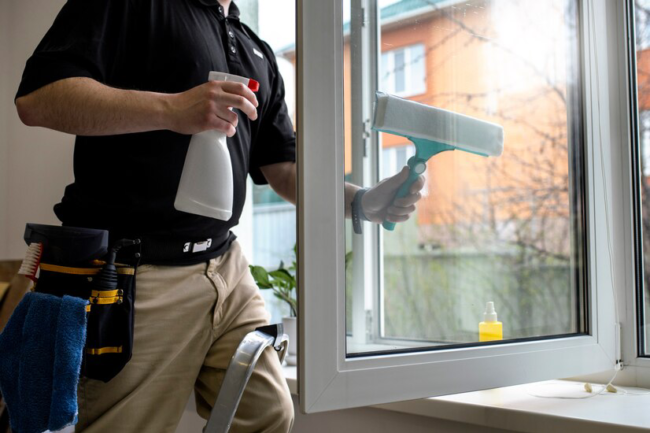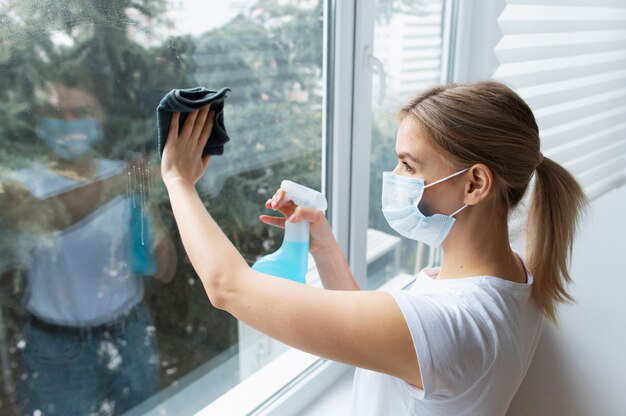In the quest for a more energy-efficient home, every small decision counts. One often overlooked yet highly impactful choice is home window tinting. Imagine this: with a simple application of tint to your windows, you could significantly reduce your energy bills while enhancing the comfort and privacy of your living spaces. Intrigued? You should be! In this blog, we’ll delve into the world of home window tinting and uncover its myriad benefits. From lowering your carbon footprint to safeguarding your furnishings from harmful UV rays, window tinting offers a multitude of advantages that go beyond mere aesthetics. Whether you’re seeking relief from scorching summers or aiming to maintain a cozy ambiance during chilly winters, investing in window tinting can be a game-changer for your home’s energy efficiency. So, let’s explore how this simple yet effective solution can transform your living environment for the better.
How Home Window Tinting Can Reduce Energy Costs
One often overlooked solution is home window tinting. Beyond its aesthetic appeal, window tinting offers a multitude of benefits, including substantial savings on energy bills. In this article, we’ll delve into how home window tinting can unlock significant savings by reducing energy costs.
 Understanding Energy Loss: Traditional windows allow heat to transfer freely between the interior and exterior of a home. During hot summers, this can lead to increased cooling costs as the sun’s rays penetrate the windows, warming the interior. Similarly, in colder months, heat escapes through windows, necessitating higher heating expenses.
Understanding Energy Loss: Traditional windows allow heat to transfer freely between the interior and exterior of a home. During hot summers, this can lead to increased cooling costs as the sun’s rays penetrate the windows, warming the interior. Similarly, in colder months, heat escapes through windows, necessitating higher heating expenses.
- How Window Tinting Works: Window tinting works as a barrier against heat transfer, thereby reducing the workload on heating and cooling systems. Tinted films are applied to the interior surface of windows, where they act as a shield, blocking a significant portion of the sun’s heat and UV rays from entering the home. This process helps maintain a more consistent indoor temperature, reducing the need for excessive heating or cooling.
- Enhanced Insulation: One of the key mechanisms through which window tinting reduces energy costs is by enhancing insulation. Tinted films provide an additional layer of insulation, effectively trapping heat inside during colder weather and blocking out excess heat during hotter periods. This insulation not only minimizes temperature fluctuations but also alleviates the strain on HVAC systems, resulting in lower energy consumption.
- Year-Round Savings: The benefits of window tinting extend throughout the year. During summer months, tinted windows help keep interiors cooler, reducing reliance on air conditioning and lowering electricity bills. Conversely, in winter, they help retain heat, leading to reduced heating expenses. This year-round energy efficiency translates to substantial savings over time.
- Financial Impact: The financial benefits of home window tinting are tangible. According to estimates by the U.S. Department of Energy, window tinting can reduce cooling costs by up to 30%. For an average household, this could translate to hundreds of dollars in savings annually. Moreover, many utility companies offer rebates or incentives for energy-efficient home improvements, further offsetting the initial investment in window tinting.
The Environmental Impact of Home Window Tinting
 Understanding Energy Consumption in Homes
Understanding Energy Consumption in Homes
Window tinting acts as a barrier against solar heat gain, preventing excessive heat from entering the home during hot weather and reducing the need for air conditioning. Conversely, it helps retain warmth indoors during colder months, reducing reliance on heating systems. By regulating indoor temperatures more effectively, window tinting can lead to significant energy savings over time.
Reducing Carbon Footprints
The environmental benefits of home window tinting extend beyond energy savings. By reducing the workload on HVAC systems, tinted windows help lower carbon emissions associated with electricity generation. This reduction in energy consumption translates to a smaller carbon footprint for households, contributing to broader efforts to combat climate change.
Preserving Natural Resources
In addition to mitigating greenhouse gas emissions, window tinting also plays a role in conserving natural resources. By decreasing the need for air conditioning and heating, homeowners can reduce their reliance on fossil fuels, which are finite resources with significant environmental impacts associated with extraction and combustion. Opting for window tinting is a proactive step toward conserving these valuable resources for future generations.
Protection Against Harmful UV Radiation
Beyond its energy-saving properties, window tinting offers protection against harmful ultraviolet (UV) radiation. Excessive UV exposure can cause skin damage, increase the risk of skin cancer, and fade interior furnishings. Tinted windows help block UV rays, safeguarding occupants and preserving the integrity of furniture, flooring, and other interior elements.
Contributing to Sustainable Living Practices
By investing in window tinting, homeowners align themselves with sustainable living practices that prioritize resource efficiency and environmental stewardship. Incorporating energy-efficient technologies into homes not only reduces operational costs but also demonstrates a commitment to reducing environmental impact and fostering a more sustainable future.
Preserving Furniture and Flooring with Window Tinting
The ultraviolet (UV) rays that penetrate through windows can cause fading, discoloration, and deterioration of materials over time. However, there’s a solution that not only protects your interior investments but also enhances the efficiency of your home: window tinting. In this article, we’ll delve into how window tinting preserves your furniture and flooring, ensuring they maintain their beauty and integrity for years to come.
Understanding the Threat
Before exploring the benefits of window tinting, it’s essential to understand the damaging effects of UV rays on furniture and flooring. Whether it’s hardwood floors, carpets, upholstery, or wooden furniture, prolonged exposure to sunlight can lead to fading, bleaching, and even structural damage. These UV rays are relentless, penetrating through windows and wreaking havoc on your interior surfaces, regardless of whether it’s a sunny day or not.
The Role of Window Tinting
Window tinting acts as a barrier against UV rays, effectively blocking a significant portion of the harmful radiation from entering your home. Unlike traditional curtains or blinds that may offer some protection but often require constant adjustment and maintenance, window tinting provides continuous defense without obstructing your view or natural light. By applying a thin film to your windows, you create a shield that preserves the vibrancy and integrity of your furniture and flooring.
Benefits for Furniture
Furniture is a significant investment, and protecting it from sun damage is crucial for maintaining its appearance and value. Window tinting helps prolong the lifespan of your furniture by reducing UV exposure, preventing colors from fading and materials from weakening. Whether it’s a luxurious leather sofa, an antique wooden table, or delicate fabric upholstery, window tinting ensures that your furniture retains its original beauty for years to come.
Benefits for Flooring
Window tinting offers a reliable defense against these threats, preserving the richness of your floors and extending their longevity. By minimizing UV exposure, tinted windows help maintain the vibrant hues of hardwoods, the plushness of carpets, and the overall aesthetics of your flooring, ensuring they remain an attractive feature of your home.
Beyond UV Protection
In addition to UV protection, window tinting offers other advantages that contribute to the preservation of furniture and flooring. By reducing heat and glare, tinted windows create a more comfortable indoor environment, minimizing the risk of overheating and excessive sunlight exposure. This optimal climate control not only enhances the comfort of occupants but also mitigates the stress on furniture and flooring caused by fluctuating temperatures and humidity levels.
The Added Benefits of Home Window Tinting
- Enhanced Privacy: One of the foremost benefits of window tinting is its ability to enhance privacy without compromising natural light. By applying tinted films to your windows, you can enjoy the views from inside your home while minimizing visibility from the outside. This is particularly beneficial for homes situated in densely populated areas or those facing busy streets, where privacy can be a concern.
- Improved Security: Window tinting provides an added layer of security by reinforcing glass against potential break-ins. While it doesn’t make windows impenetrable, it can make them more resistant to shattering upon impact, thereby deterring burglars and increasing the overall security of your home. This peace of mind is invaluable for homeowners looking to safeguard their property and loved ones.
- Energy Efficiency: By reducing heat gain in the summer and heat loss in the winter, tinted windows help regulate indoor temperatures, thereby reducing the workload on heating, ventilation, and air conditioning (HVAC) systems. This translates to lower energy consumption and reduced utility bills over time, making window tinting a cost-effective solution for homeowners seeking to minimize their environmental footprint.
- Preservation of Interior Furnishings: While natural light can brighten up a space, prolonged exposure to UV rays can cause fading and deterioration of furniture, flooring, and artwork. Window tinting acts as a barrier against harmful UV rays, preserving the vibrancy and integrity of your interior décor for years to come. This not only saves you money on replacement costs but also allows you to enjoy your furnishings in their original condition for longer.
- Protection for Occupants: In addition to safeguarding interior furnishings, window tinting also offers protection for the occupants of the home. Prolonged exposure to UV radiation can increase the risk of skin cancer and other adverse health effects. By blocking up to 99% of UV rays, tinted windows help mitigate this risk, providing a safer and healthier indoor environment for you and your family.
CONCLUSION
Quality Auto Glass Tint Inc in Salida, California, United States, we are committed to maximizing energy efficiency through our premier home window tinting services. By providing effective solutions to reduce heat transfer and UV radiation, we not only enhance the comfort and privacy of homes but also contribute to significant energy savings for our customers. With our dedication to quality and expertise in window tinting, we strive to offer sustainable solutions that benefit both homeowners and the environment. Contact us at (209) 900-8269 to experience the transformative benefits of our services firsthand.




